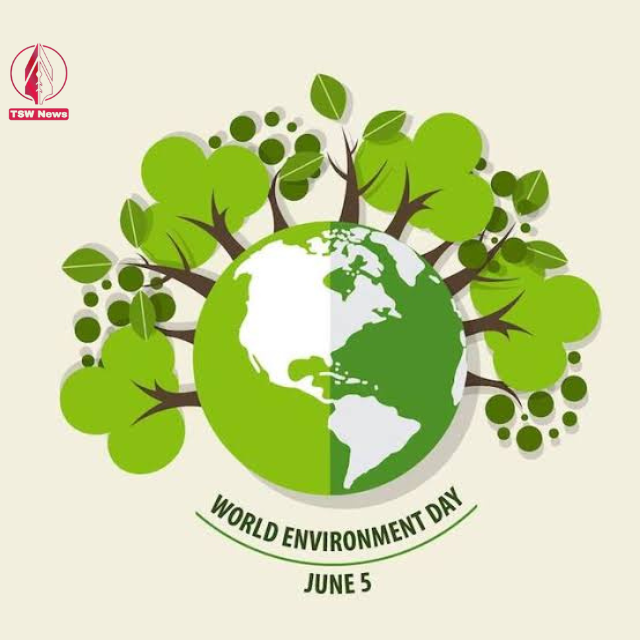10 Countries of the World Who Preserved Their Natural Environment: World Environment Day 2023
- Posted on June 5, 2023
- News
- By Arijit Dutta
- 404 Views

Introduction:
As the global community comes together to celebrate World Environment Day, it's important to recognize the countries that have made significant strides in preserving and nurturing their natural surroundings. These nations have demonstrated a deep commitment to sustainability, conservation, and environmental protection. In this article, we will explore the top 10 countries with the best environment, showcasing their innovative initiatives and successful practices that have set them apart as leaders in environmental stewardship.
Switzerland:
Switzerland consistently ranks high in environmental performance. With its pristine landscapes, stringent environmental regulations, and focus on renewable energy, Switzerland is a shining example of sustainability. The country actively promotes recycling, sustainable transportation systems, and the preservation of its stunning alpine ecosystems.
Sweden:
Renowned for its strong environmental policies, Sweden is at the forefront of sustainable development. The country has made remarkable progress in reducing carbon emissions, increasing renewable energy production, and implementing efficient waste management practices. Sweden's commitment to achieving a carbon-neutral society by 2045 is an inspiration to the world.

Finland:
Finland boasts an exceptional natural environment with countless lakes, forests, and national parks. The country places great emphasis on preserving its natural heritage through sustainable forestry practices and wildlife conservation. Additionally, Finland has made significant investments in renewable energy, particularly in wind power.
Denmark:
Denmark consistently ranks among the greenest countries in the world. The nation has been a pioneer in wind energy, with a significant portion of its electricity generated through wind turbines. Denmark also prioritizes sustainable urban planning, promoting cycling, and investing in green technologies.
New Zealand:
New Zealand is renowned for its breathtaking landscapes, including its lush forests, pristine beaches, and magnificent fjords. The country is committed to sustainable tourism practices, biodiversity conservation, and the protection of its unique flora and fauna. New Zealand's ambitious goal of being carbon neutral by 2050 is a testament to its dedication to environmental sustainability.
Norway:
Norway's deep appreciation for nature and commitment to environmental protection are evident in its policies and practices. The country is a global leader in hydroelectric power generation, and it has made substantial progress in reducing greenhouse gas emissions. Norway also actively promotes electric vehicles and invests in innovative solutions to combat climate change.
Costa Rica:
Costa Rica is a small Central American nation that punches above its weight in terms of environmental conservation. With over 25% of its land dedicated to protected areas, it boasts incredible biodiversity. Costa Rica's commitment to sustainable tourism, reforestation efforts, and renewable energy has earned it a reputation as an ecological paradise.
Austria:
Austria is renowned for its majestic alpine landscapes, but it's also a frontrunner in environmental sustainability. The country promotes renewable energy sources, sustainable transportation systems, and energy-efficient buildings. Austria's commitment to waste management and recycling is exemplary, with high rates of recycling and effective waste reduction strategies.

Iceland:
Iceland's unique geology and commitment to renewable energy make it a standout country in terms of environmental stewardship. The nation relies heavily on geothermal and hydroelectric power, reducing its dependence on fossil fuels. Iceland's dedication to conserving its pristine natural landscapes and minimizing environmental impact make it a true environmental role model.
Bhutan:
Bhutan stands out for its holistic approach to environmental conservation and sustainable development. The country famously measures its success based on Gross National Happiness rather than Gross Domestic Product. Bhutan places a strong emphasis on forest conservation, organic farming practices, and the protection of its cultural heritage. It is the only carbon-negative country in the world, absorbing more carbon dioxide than it produces.
Many more countries fall under the category who are into the race of modernisation yet able to prevent the environmental damage. There are various aspects that can lead to healthy living and help them to become greener countries.
Like the above, the countries who are struggling with environmental issues should opt for multiple strategies to save nature.
Better Environment, Better Survival
For more updates keep visiting our website www.topstoriesworld.com where we provide unbiased, true and top stories of the world.




